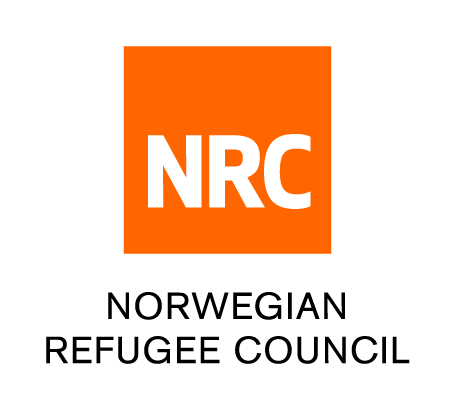The Norwegian Refugee Council (NRC) is an independent, humanitarian, non-profit, non-governmental organisation, which provides assistance, protection and durable solutions to some of the world’s 42 million refugees and internally displaced persons.
With humanitarian assistance programmes in 20 countries, NRC assists people to claim their rights, access available remedies, and recover from the effects of abuse and violations. NRC’s Information, Counselling and Legal Assistance (ICLA) supports beneficiaries in claiming and exercising their rights. ICLA provides information, counselling, legal assistance, collaborative dispute resolution, capacity- building and advocacy activities. An increasingly important area of NRC’s legal aid work supports displaced women as they seek to enforce their housing, land and property (HLP) rights.
Members:
Resources
Displaying 26 - 30 of 48Support the Government of Colombia to Advance in the Implementation of the Peace Agreement, in Point 1, Regard
General
This is a technical assistance project to the Colombian Government, specifically to the National Land Agency, for the implementation of the Peace Agreement, in Point 1. It encompasses comprehensive rural development in achieving access to land and formalization. The project accomplishes this through organized attention to land rights applications of the population and the assignment of the corresponding property titles. In doing so, it advances the objectives of regularizing rural land tenure, gender approaches that vindicate the role of the rural women in the exploitation and use of the properties, and as a decisive factor in rural development.
Reducing Vulnerabilities of Displaced Communities through Durable Solutions Programming in Somalia - Danwadaag
General
The ever-growing displacement crisis in Somalia necessitates a two-pronged geographical targeting approach to limiting and reducing the IDP caseload. IOM-led Danwadaag Consortium overall objective with this project is to reduce the IDP caseload by a significant margin and enhance government capacity at various levels. The project proposes firstly, the development and implementation of a comprehensive exit strategy or referral pathway which is required for the vulnerable IDPs concentrated in primary urban centres (Banadir, Baidoa, Kismayo). Secondly, Danwadaag will target strategic intermediary towns (Xudur, Berdale, Doolow and Baardheere), where initial IDP caseloads have been recorded, and present the potential to buffer primary urban centres from the shock of continued mass displacement flows, which jeopardise hard fought resilience gains in cities like Baidoa. The estimated target reach is 502,320 vulnerable displacement affected individuals across the targeted regions of South West State (SWS), Jubaland, and Banadir. Overall, this project prioritizes tenure security, improved living conditions, and livelihood opportunities for vulnerable communities while also incorporating a crisis response mechanism. Furthermore, the program focuses on knowledge generation and policy influence at both local and global levels, reinforcing its commitment to evidence-based, coordinated, and sustainable solutions to Somalia's displacement challenges.
Strengthening Reintegration Capacity for Burundian Returnees through Housing, Land, Property (HLP), Shelter, W
General
Following the signing of tripartite agreements between the Government of Burundi, UNHCR as well as well as respectively the Governments of the United Republic of Tanzania and Rwanda, an estimated 142,000 Burundians are expected to return in 2021 (UNHCR). This number, comprising both voluntary returns and spontaneous returns, is also stressed by recently reported forced returns from the United Republic of Tanzania. The general objective of this project is to contribute to national efforts in strengthening the reintegration capacity for Burundian returnees and displaced populations within communities, through (i) improved access to land following awareness-raising of displaced/host communities on Housing, Land and Property (HLP), HLP related issues and capacity building of local authorities, and (ii) improved absorptive capacity of host communities for returnees through the provision of Water, Sanitation, and Hygiene (WASH) and shelter facilities, (iii) delivery of direct assistance and services to meet land access-related protection needs and risks experienced by returnees, including through mapping of services, referrals, and case management, and (iv) improved mental health of returnees’ through mental health and psychosocial support (MHPSS), and implementation of social cohesion activities for individuals in return areas.
Support for the Design and Implementation of Social Ordinance Plans for Rural Property
General
IOM is working with the Government of Columbia to reform and strengthen land tenure in compliance with Point 1 of the Peace Agreement between the Government and the FARC. For this purpose, the project will strengthen the operational capacities of the National Land Agency in the formulation and implementation of Municipal Plans for the Social Management of Rural Property (POSPR) in seven prioritized municipalities in the departments of Tolima, Valle del Cauca and Meta.
Livelihood Enhancement Program for Refugees, Migrants, Mauritanian Returnees, and Host Communities in Hodh Cha
General
Mauritania is facing multiple and interlinked challenges: rising insecurity, demographic growth including through the new arrivals of refugees, and migrants which are elevating demand of natural resource. Additional concerns include an environment threatened by land degradation and recurrent droughts which impact the resilience of all the populations in Hodh Chargui (HEC). In addition, due to a lack of access to basic services and economic opportunities, a large portion of the population is living in poverty. All of the aforementioned obstacles have contributed to significantly heightened pressure on agricultural production systems and natural resources. This then impacts the livelihood of refugees, migrants and host communities in HEC. Given the current challenges and local needs, the proposed project aims to further enhance the climate resilience of refugee, migrant, and migration-prone communities by providing sustainable solutions and responses to reinforce the local livelihood. This will enhance the capacities of communities to foster social cohesion and peaceful coexistence among refugees, migrants, and host communities.


